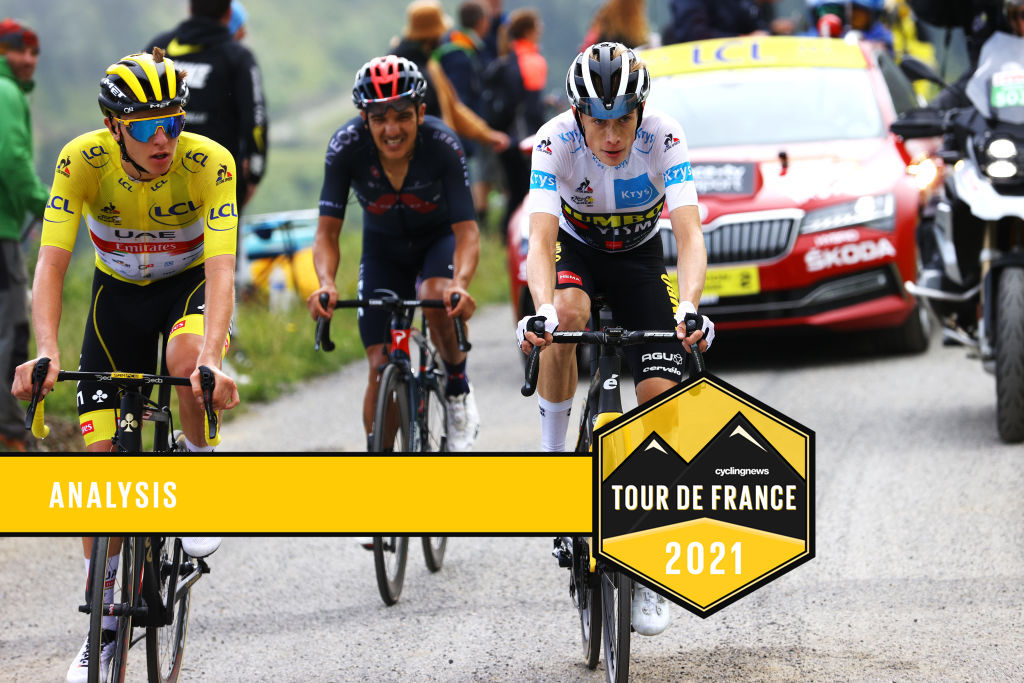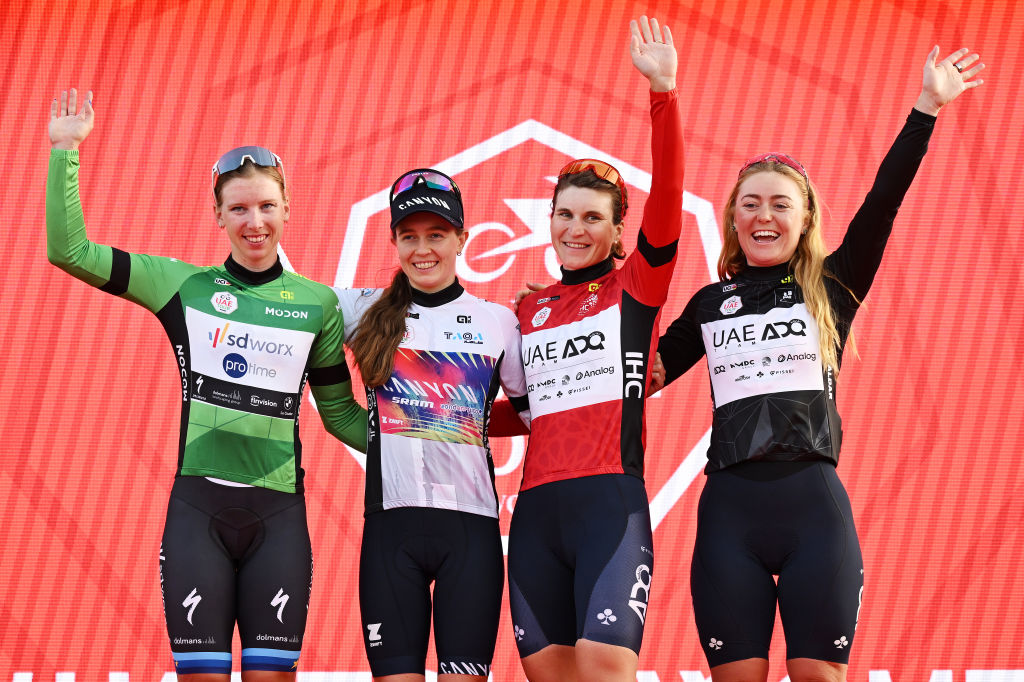Philippa York: Carapaz bluff was an epic fail
'Scandalous tactic shows the desperation at Ineos and won't go unnoticed'

The latest race content, interviews, features, reviews and expert buying guides, direct to your inbox!
You are now subscribed
Your newsletter sign-up was successful
UEFA Euro 2020 being fresh in everyone’s memory, it seems quite fitting to refer to some of the action we saw during stage 17 of the Tour de France using language more commonly heard when observing the beautiful game.
Quite why it’s called that always puzzles me because, outside of moments of particular skill, there seems to be an awful lot of kicking each other, pulling shirts, and arguing over every minor decision, but I’ll stick with it - which is what Richard Carapaz did to his two companions Tadej Pogačar and Jonas Vingegaard until 1500 metres from the line atop the Col du Portet. Then he attacked them.
Oh dear, not a good move. Not when he had pretended to be hanging on for the previous 7km. He had, in football terms, committed the equivalent of feigning injury, rolling on the grass screaming in pain in order to see an opponent sanctioned for an imaginary foul.
Remember, this is the rider who won the Giro d’Italia two years ago and therefore is no stranger to being at the front of a major race. It’s fair to say he understands the tactics involved when the decisive moments happen at the top level. Therefore, given he had a vested interest to distance his nearest rival on GC, Rigoberto Urán, by as much as possible before the penultimate-day time trial, the question to be asked is, why did the Ecuadorian pretend to be unable to work with the best two riders in the race?
It wasn’t up to Pogačar or Vingegaard to ride on the front; they are both ahead in the general classification and they are both better time triallists. Other than winning the stage and getting to the finish as comfortably as possible, they had no great reason to ride away from the other guys involved in the podium battle. That wasn’t the case for Carapaz because he was the one who had most to gain by putting time into Urán - even at the cost of a possible stage victory, which was going to be unlikely anyway as both the yellow and the white jerseys were stronger.
Carapaz’s mission once Urán lost contact should have been to ride as hard as he could, but strangely he wouldn’t. Worse still, he probably said he couldn’t when the others requested his assistance. If it was orders from the team not to, then he might have indicated that to his rivals, who would have acknowledged his dilemma, even if they weren't happy about it.
But to make out that you’re struggling when you ought to be the one who is riding your guts out is pretty bad. Then to attack is an epic fail on the moral scale and won’t go unnoticed by anyone.
The latest race content, interviews, features, reviews and expert buying guides, direct to your inbox!
Let's not forget that beforehand there was a bizarre episode with Carapaz's teammate Jonathan Castroviejo getting in the way of Pogačar's domestique Rafal Majka when he was setting the pace. I know there’s not much honour sometimes in cycling but sitting on when you have no excuse for shirking, and then jumping those who are pulling on the front, are some of of those things that you don’t do. It’s poor even when you have a good reason.
Thankfully, Pogačar was onto the Ineos rider straight away and Vingegaard clawed his way back just in time to see the race leader take a well deserved win. If Carapaz had stolen the stage victory it would have been as scandalous as his refusal to ride and then attack.
Basically, the tactic was the equivalent of the professional foul - hacking someone down to prevent a scoring opportunity. Definitely a yellow card offense and if that’s the way the game is being played then Ineos had better hope nothing happens like a puncture or a mechanical at an inopportune time. You might not be friends with your rivals but you certainly don’t want to make enemies needlessly either.
Coming into this final segment of the Tour, it shows the desperation involved at the team that were once dominant and are now suffering at the hands - or rather pedals - of others. They, like a lot of teams, have mitigating circumstances that explain some of their disappointing results and, even if they do finish with Carapaz in third spot, they can be better than what we saw on the first of the big Pyrenean stages.
Leading up to this point, questions were asked of UAE Team Emirates and whether they were strong enough to keep Pogačar in a position where he could do his thing and go and win the race. I think on the road to Saint-Lary-Soulan we saw the answer to that as they perfectly controlled the midfield and let their striker put the ball in the net in the final minutes. It wasn’t an outrageous tempo, it wasn’t dominant, and it didn’t have you questioning if what you saw was real. UAE used their riders intelligently and, as is the case when you have the lead of the Tour de France, everybody stepped up and gave their all.
In much the same way that the guys in the gruppetto are surviving on the thoughts that Paris is in sight, proper grimaces and suffering were involved and ultimately that’s what we all admire.
Philippa York is a long-standing Cyclingnews contributor, providing expert racing analysis. As one of the early British racers to take the plunge and relocate to France with the famed ACBB club in the 1980's, she was the inspiration for a generation of racing cyclists – and cycling fans – from the UK.
The Glaswegian gained a contract with Peugeot in 1980, making her Tour de France debut in 1983 and taking a solo win in Bagnères-de-Luchon in the Pyrenees, the mountain range which would prove a happy hunting ground throughout her Tour career.
The following year's race would prove to be one of her finest seasons, becoming the first rider from the UK to win the polka dot jersey at the Tour, whilst also becoming Britain's highest-ever placed GC finisher with 4th spot.
She finished runner-up at the Vuelta a España in 1985 and 1986, to Pedro Delgado and Álvaro Pino respectively, and at the Giro d'Italia in 1987. Stage race victories include the Volta a Catalunya (1985), Tour of Britain (1989) and Critérium du Dauphiné Libéré (1990). York retired from professional cycling as reigning British champion following the collapse of Le Groupement in 1995.

